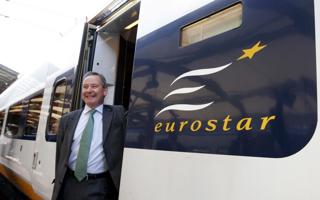From Transport Focus’s perspective, the key to GBR success will ensuring the customer is at the heart of GBR and its decisions, says Alex Robertson.
The King’s Speech brings the creation of Great British Railways (GBR) one step closer.
From Transport Focus’s perspective, the key to GBR success will ensuring the customer is at the heart of GBR and its decisions, says Alex Robertson.
The King’s Speech brings the creation of Great British Railways (GBR) one step closer.
There is much to be welcomed about GBR - a body that will co-ordinate infrastructure and service delivery, align industry incentives, and provide a ‘guiding mind’ function that facilitates a more efficient and reliable railway. All highly desirable things.
GBR Transition Team leader (and Network Rail Chief Executive) Andrew Haines has also repeatedly acknowledged that rail reform cannot just be about changing organisational structures. It is also about cultural change - the culture of GBR will need to be different to Network Rail.
From Transport Focus’s perspective, the key to this will be to ensure that the customer is at the heart of GBR and its decisions.
This starts with a good understanding of what passengers want. For the railway to put passengers first, it’s crucial that the targets set for it reflect what is actually most important to passengers, not what railway leaders think should be most important to them.
This is why we believe that measuring passenger satisfaction is so important. The best judge of quality is someone who has used the service.
Having targets - and action plans if those targets are missed - will help to drive up quality.
But getting customer-centric measures and targets right is only half the challenge. Everything that matters can’t always be measured. Targets create incentives and drive behaviour, but they can also stifle initiative and create unintended consequences.
The advantage of starting with customers is that it would signal a shift in culture. Rather than focusing only on ‘How can I hit my target?’, everyone across the industry would be encouraged to think: ‘What would customers want?’
If a customer survey were combined with a new industry-wide colleague survey (I’m not sure one has been done before), it would be a great way to signal a shift in culture.
For example, if we want passengers to feel a greater sense of personal security, how can we do this if some of the frontline staff don’t always feel safe themselves?
Or if we think we’ve created a customer-focused culture, but the colleague survey consistently tells us something different, wouldn’t we want to know where the biggest gaps were?
This consumer focus shouldn’t just be a passive relationship, with passengers filling in surveys. Passengers want a sense that their voice matters and that the person in charge is listening.
Our research shows the value of engaging passengers in decision-making. Even the act of engagement itself brings benefits, as it starts to build a relationship of trust between customer and supplier - something that’s in short supply.
As GBR begins to evolve, it will be important that the consumer voice also evolves and strengthens.
A powerful GBR needs a strong consumer champion to offset it.
The government plans to create a ‘Passenger Standards Authority’ to carry out this role, bringing together (among other things) Transport Focus and the consumer functions of the Office of Rail and Road.
The development of this Passenger Standards Authority needs to happen alongside the development of GBR if it is to provide an effective counterbalance, and to support the Transport Secretary in her role as ‘passenger-in-chief’.
Devolution continues to be one of the challenges facing GBR. Scottish and Welsh ministers will retain the powers and duties they currently have, including for setting passenger services, while GBR will have responsibility for most of the infrastructure. Achieving a single vision will require close partnership working.
The same is true of devolution to the English regions.
Giving the Mayors a bigger voice in rail offers a lot of potential benefits - integrating with buses and trams, and in terms of fares and ticketing. Integrated ticketing has long been one of Transport for London’s major benefits.
The benefits of devolution must be combined with clarity over decision-making - some of the ‘guiding mind’ benefits arising from GBR could be lost if decision-making is less clear at a local level.
There is a balance to be worked out here. Any solution must also ensure that passenger representation is baked in as standard.
The key is to engage, whether that be at a local or national level. The closer passengers are to the decisions being made, and to the people who make them, the more likely they are to be the right decisions for them.
Alex Robertson is chief executive at Transport Focus.
Login to continue reading
Or register with RAIL to keep up-to-date with the latest news, insight and opinion.


















Login to comment
Comments
No comments have been made yet.